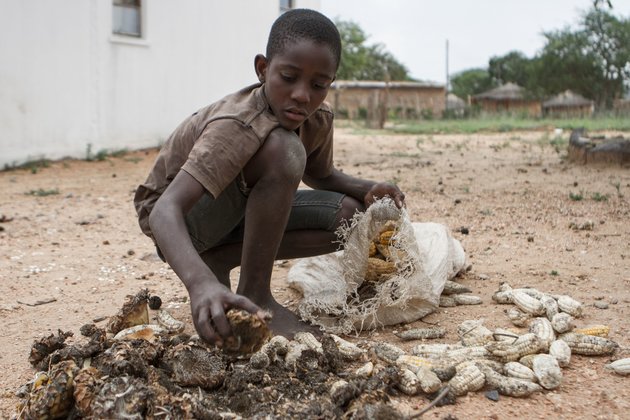HARARE – A bumper harvest does not translate into food security for the country if storage facilities are not adequate, World Food Programme country director Eddie Rowe said.
In an interview with the Daily News, Rowe said the country’s storage facilities are either in poor shape or non-existent, and thus may affect the country’s maize storage
His remarks come as government is predicting a bumper harvest from the above normal rains that were experienced in the 2016/207 agricultural season.
Zimbabwe requires approximately 1,8 million metric tonnes of maize, including small grains such as millet and sorghum, however, since the 2000 land reform, the country has failed to produce a third of the national food requirements.
“One of the root causes of food insecurity is that up to 30 percent of the harvest is lost due to poor storage and handling. We can have a bumper harvest but if half of that is lost through poor storage, then communities will have limited availability of commodities for the next harvest,” Rowe said.
He added that another reason is that for most of the smallholder farmers the incentive for them to increase production is not there because there is no market access.
“In the region WFP buys between 200 000 to 300 000 metric tonnes of cereals. That is a market that we can harness here and ensure that when these smallholder farmers produce, they have markets to sell to which in turn we will enable them to diversify their livelihoods,” he said.
However, senior principal director in the Office of the President and Cabinet Ozias Hove said refurbishments of the storage facilities are almost complete.
“At the Grain Marketing Board (GMB) centres apart from the silos there are going to be other arrangements put in place to ensure that delivered grain is secured. All grain produced will be safely kept in those GMB centres,” Hove said.
At least 1,2 million hectares of maize was planted this year compared to 773 000 of 2016 while sorghum increased from 86 000 hectares to 188 430 this year.
Communal farmers planted 724 735 hectares of maize, peri-urban farmers 12 734, small-scale commercial farmers 46 234, A2–152 227, old resettlement 114 991 and A1 farmers planted 192 703 hectares.






